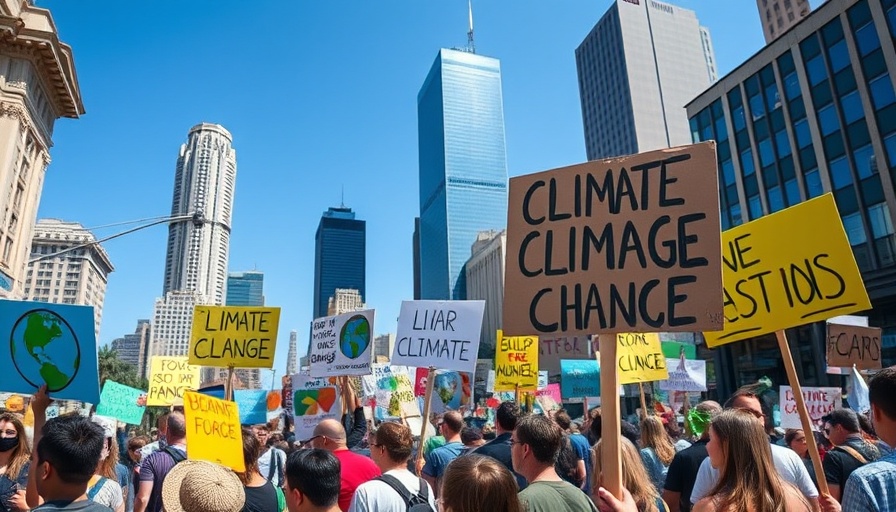
Rallying for Science: A Call to Action in Philadelphia
On March 7, 2025, a wave of passion and determination swept through Philadelphia as researchers, advocates, and community leaders gathered at City Hall for the Stand Up for Science 2025 March. Unified in purpose, over 2,000 participants took to the streets to demand renewed federal funding for biomedical research and to safeguard scientific progress that benefits every aspect of society.
The Power of Collective Advocacy
This grassroots initiative serves as a reminder that science is not just an academic pursuit but a vital resource that impacts our daily lives. The event strategically coincided with a Senate session in Washington D.C., allowing participants to engage with policymakers back in their districts directly. Among the prominent voices at the rally, Dr. Montserrat Anguera of the University of Pennsylvania spoke candidly about her struggles with NIH funding delays. Her passion reflects a broader concern heard among many advocates: the protection of federal support for crucial research initiatives.
Investing in Public Health and Community Well-Being
The ramifications of diminished funding reach far beyond individual labs; they threaten public health and economic growth across the region. As Councilmember Nicolas O’Rourke stated, “The National Institutes of Health, which has saved millions of lives, is now under attack — along with the institutions and experts who made those breakthroughs possible.” His sentiments resonate with many community leaders, who understand the essential role that scientific research plays in addressing health disparities and advancing social equity.
Unique Insights on Funding Cuts
Dr. Melina Blees, director of BioLabs Philadelphia, expressed her frustrations regarding the current NIH funding crisis, which has effectively frozen over $1.5 billion in critical support. Blees articulated a painful truth: “What lacks in this country is basic scientific understanding, and this is hurting us.” This assertion illustrates the need for a scientific foundation that supports innovation while fostering diversified research opportunities for future generations.
The Future of Science in America: A Critical Junction
Experts like Dr. Alyn Turner have warned that failing to prioritize scientific funding could dismantle the very systems that support our understanding of the world. “If we don’t stand up for science, critical funding for scientific research will be threatened and removed,” she cautioned. The rally’s closing message underscored the urgency for Congress to renew its commitment to investing in science — a message not only critical for researchers but for the broader public.
Celebrating a Community's Resilience
Every voice at the Stand Up for Science March echoed the sentiment that we are in this together. The passion shown through heartfelt anecdotes and personal stories reflect the emotional stakes at play. For many attendees, the science community represents hope, education, and the promise of improved health outcomes. The rally was more than just a protest; it was a gathering of individuals committed to fostering love for science and making change for the better.
Moving Forward: Your Role in Scientific Advocacy
As we look ahead, it's vital for concerned citizens, especially top wage earners in Philadelphia, to engage in conversations surrounding the importance of scientific investment. The future of scientific research depends on collective advocacy and support. Consider advocating for science in local settings or participating in future events to showcase your commitment. Join the movement to ensure that our understanding of the world continues to advance!
 Add Row
Add Row  Add
Add 




Write A Comment